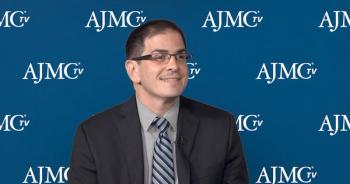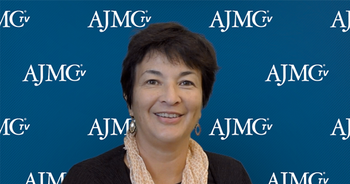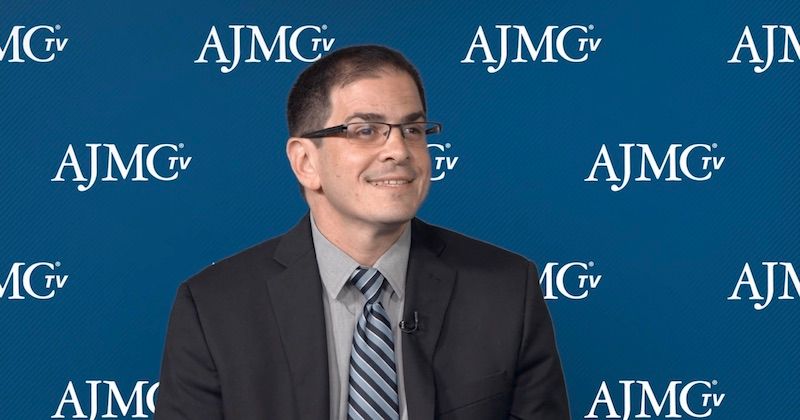
Multiple Sclerosis
Latest News

Latest Videos

CME Content
More News

Sessions and posters from the 35th Congress of the European Committee for Treatment and Research in Multiple Sclerosis discussed various ways to measure patient-reported outcomes in multiple sclerosis.

Since the introduction of disease-modifying therapies for multiple sclerosis (MS), evidence from disease registries has shown how the therapies work in the real world and reduce the effect of MS on people’s lives, according to Daniel Kantor, MD, president of Kantor Neurology.

A joint session of ECTRIMS and the European Academy of Neurology assesses important topics in measuring relapse and progression in multiple sclerosis (MS).

Coverage of our peer-reviewed research and news reporting in the healthcare and mainstream press.

Patients with multiple sclerosis (MS) have a generally increased risk of cardiovascular disease, and some evidence is emerging that disease-modifying treatments may alter this risk. Thomas Frisell, PhD, coordinator of the Clinical Epidemiology Unit, Karolinska Institutet, Stockholm, Sweden, discusses whether newer treatments for MS, such as ozanimod, may present an improved cardiac safety profile for patients with MS versus older treatments, such as fingolimod.

Multiple sclerosis (MS) can be a challenging disease to diagnose because of its broad range of symptoms and because of the fact that many other syndromes can mimic MS. Additionally, the McDonald Criteria, which are clinical, radiographic, and laboratory criteria used for diagnosing MS, are sometimes misapplied, according to Andrew Solomon, MD, associate professor of neurological sciences and division chief of multiple sclerosis at Larner College of Medicine, The University of Vermont, Burlington, Vermont.

Results for ozanimod, which is under review by FDA and European regulators for treatment of relapsing multiple sclerosis (MS), were presented in poster sessions September 12, 2019, at ECTRIMS 2019, the 35th Annual Congress of the European Committee for Treatment and Research in Multiple Sclerosis, taking place in Stockholm, Sweden.

Age is an important factor in the disease burden of multiple sclerosis (MS), as rising age both impacts disease course and brings with it additional risk of comorbidities. However, disease duration may be an even more important factor than age in reaching disability milestones, according to Viktor von Wyl, PhD, project leader, Epidemiology, Biostatistics and Prevention Institute, University of Zurich, Zurich, Switzerland.

FDA recently accepted the Biologics Licensing Application for inebilizumab to treat a rare autoimmune condition, neuromyelitis optica spectrum disorder. The results for inebilizumab were presented at the 35th Annual Congress of the European Committee for Treatment and Research in Multiple Sclerosis, taking place in Stockholm, Sweden.

While current therapies for multiple sclerosis (MS) that treat focal inflammation are beneficial for many patients, there are other crucial aspects of the disease, including brain volume loss, that are not clearly linked to this inflammation and that demand new therapeutic developments, said Jan Hillert, MD, PhD, professor and senior physician in the department of clinical neuroscience, Karolinska Institutet, Stockholm, Sweden.

Speakers at a session at ECTRIMS 2019 on long-term outcomes in multiple sclerosis said that better therapies and improved understanding of the effect of comorbidities have improved outcomes. The session was part of the 35th Annual Congress of the European Committee for Treatment and Research in Multiple Sclerosis, taking place in Stockholm, Sweden.

Maria Trojano, MD, professor of neurology at the University of Bari, Italy, offered the opening lecture at ECTRIMS 2019, the 35th Annual Congress of the European Committee for Treatment and Research in Multiple Sclerosis, taking place in Stockholm, Sweden.

A poster featuring a post-hoc exploratory analysis of measures of thalamic volume from RADIANCE was presented September 11, 2019, at ECTRIMS 2019, the 35th Annual Congress of the European Committee for Treatment and Research in Multiple Sclerosis, taking place in Stockholm, Sweden.

Addressing comorbidities plays an important role in the management of patients with multiple sclerosis (MS), particularly given their association with hospital admissions. In a study using data from the National Patient Sample, comorbidities were linked with patients’ age, sex, and race and ethnicity, said Deborah Taira, MPA, ScD, professor, Daniel K. Inouye College of Pharmacy, University of Hawai‘i at Hilo.

Some data suggest that pregnancy may be beneficial in the long-term for patients with multiple sclerosis (MS), but there exist periods that may carry an extra risk of relapse, such as before conception and in the postpartum period, according to Marie D’hooghe, MD, PhD, neurologist at the National MS Center, Melsbroek, in Brussels, Belgium, and consultant neurologist at the University Hospital in Brussels, Belgium.

Using imaging, laboratory testing, and predictive models, the field of multiple sclerosis (MS) is getting closer to predicting the course of MS and, eventually, the best medication for a given patient, said Daniel Kantor, MD, president of Kantor Neurology.

In 2 studies published in The Lancet Neurology, ozanimod was well tolerated and had a lower relapse rate in patients with relapsing multiple sclerosis.

The field of treatments for multiple sclerosis (MS) has grown quickly in the last 30 years, but the next new class of therapies probably won’t come to market for at least another year and a half, said Daniel Kantor, MD, president of Kantor Neurology.

A guideline update issued by the American Academy of Neurology states that patients with multiple sclerosis (MS) should receive all recommended vaccinations unless contraindicated.

Every week, The American Journal of Managed Care® recaps the top managed care news of the week, and you can now listen to it on our podcast, Managed Care Cast.

This week, the top managed care stories included a huge ruling against one opioid maker and a settlement offer from another; an expert panel calling for broader screening for hepatitis C; a review showing there are more fatal events linked to a multiple sclerosis drug than previously known.

Understanding patient-reported outcomes in disease states enhances our ability to provide patients with better care and an increased quality of life, said Patty Taddei-Allen, PharmD, MBA, BCACP, BCGP, director of outcomes research, WelldyneRx.

Even as more competition entered the market, the prices of self-administered disease-modifying therapies for multiple sclerosis (MS) rose steadily from 2006 to 2016, and seniors with Medicare Part D coverage saw a 7.2-fold increase in out-of-pocket costs.

Fatal adverse events (AEs) associated with alemtuzumab for multiple sclerosis (MS) may occur more frequently than previously understood based on past published literature, researchers found.

The Consortium of Multiple Sclerosis (MS) Centers is unique in that it places physicians and other healthcare professionals on a level playing field while elevating the patient’s voice to be the most important on the team, explained June Halper, MSN, APN-C, MSCN, FAAN, chief executive officer, Consortium of Multiple Sclerosis Centers.


















